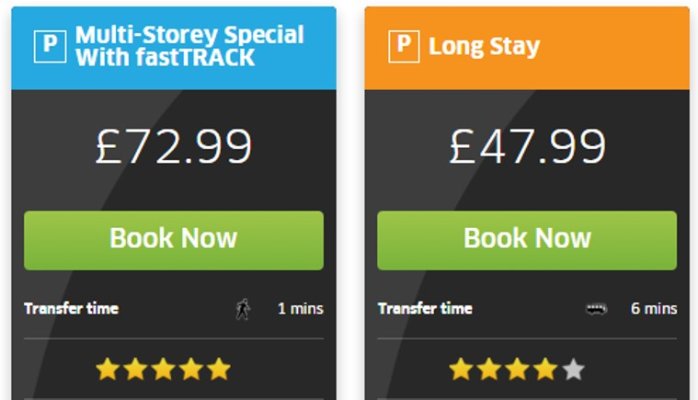Dynamic Pricing in Airport Car Parking

If I put together a “word cloud” of all the phrases and words used at November’s Airport Parking Networking Event (APNE) in Stockholm then “dynamic pricing” would be in the middle in capital letters, such was the focus around this topic. Having the ability to have the most appropriate price in front of the customer at the right time seems to be challenge number 1 for many car parking commercial managers.
The world of pre-book car parking has enabled dynamic pricing in airports that use pre-book software such as AltitudeReservation. With the customers who are booking online, the possibility exists to adapt the pricing to levels that the customer is willing to pay. In turn, data is generated around the success of these prices, which allows airports to learn and adapt their pricing.
When the prices are perceived as too high, customers are choosing to book rival off-site car parks, utilise public transport options, or lean on their relatives for lifts to the airport. When the prices are too low, the car park fills up too quickly, missing an opportunity to produce higher revenues from the roll up traffic, or for increased occupancy from people who would stay longer.
There are a range of approaches to pricing, and whilst car parking commercial managers are right to look at both the airline and hotel industry and their best practices for how to manage this, the challenges for the parking industry are quite unique. Car parks are constrained by the amount of capacity they have, have an unknown quantity of roll up custom sat in their lots, and many of the bookings coming in a late booking period.
The main approaches to pricing are:
Arrival Days
At a basic level it is possible to differentiate the pricing by arrival days, ie a customer staying 2 days arriving on a Friday pays different to one staying 2 days arriving Tuesday. The weekend customer is more price sensitive and more attracted to discounts. Weekend bookers in particular are attractive because they will leave the car park in time for the busy business traffic from Monday through to Wednesday.
Lead Time Pricing
A relatively small percentage of people book car parking more than, say, 2 weeks in advance, but it is useful to have these bookings in place. These are often the customers who like to plan and have booked a leisure trip with an airline, so it is possible that some custom is lost here to off-site competition. Setting simple discount rules against basic pricing allows you to encourage bookings in the advance window without cannibalising the peak booking period. Often the discounts are only offered hand-in-hand with some restrictions, like removing the ability to cancel and amend the booking. Hotels often promote the rule as a product name, which allows customers to understand the discounting principle and they know when to book: for example: “14-day 20% off advance purchase discount" or "advance saver".
Peak Pricing Uplifts
Of course dynamic pricing is not purely about setting discounts, the prices can also be yielded up, and should routinely do so at peak times. It is possible with pre-book technology to set simple rules that yield the price upwards during peak arrival times, arrival dates and when the occupancy reaches a certain level.
Seasonal Promotions
Promotions are effective when used tactically, have a clear proposition and have fixed dates – so as to create a sense of urgency. Airports should look to use them to power quiet periods including months such as January and for weekends. Successful promotions that I’ve run in the past have very simple price points (“£50 for 3 days” is more palatable for a customer than “£49.27 for a weekend”) and a clear time available (“book by 1st Jan, arrivals until end Feb”) etc.
We find that every airport has different challenges and therefore different approaches, but at the heart of it everyone is trying to do the same two things – to maximise revenue and to have the right price in front of the customer at the right time. I predict in the future that airports will be able to price even smarter as pre-book adoption, pricing tools and data visibility grows.
Written by Lee Rainford, ADVAM
About ADVAM
ADVAM is a leading global provider of payment solutions, providing a full suite of parking, reservation and ecommerce applications. Managed on its own proprietary payment gateway, ADVAM solutions are PCI Level 1 and EMV compliant, assisting clients to navigate the legislative landscape. In addition, ADVAM’s transaction network handles dedicated links with acquirer banks in over 20 countries, offering the power of multicurrency acquiring and instant access to global markets.
ADVAM’s expertise enables custom integrations with merchants existing systems and processes. As such, ADVAM has a wide range of client solutions across the globe including Sydney Airport, Dublin Airport, Raleigh-Durham Airport, Swedavia, Wilson Parking, Westfield, NCP and many more.




Comments
There are no comments yet for this item
Join the discussion